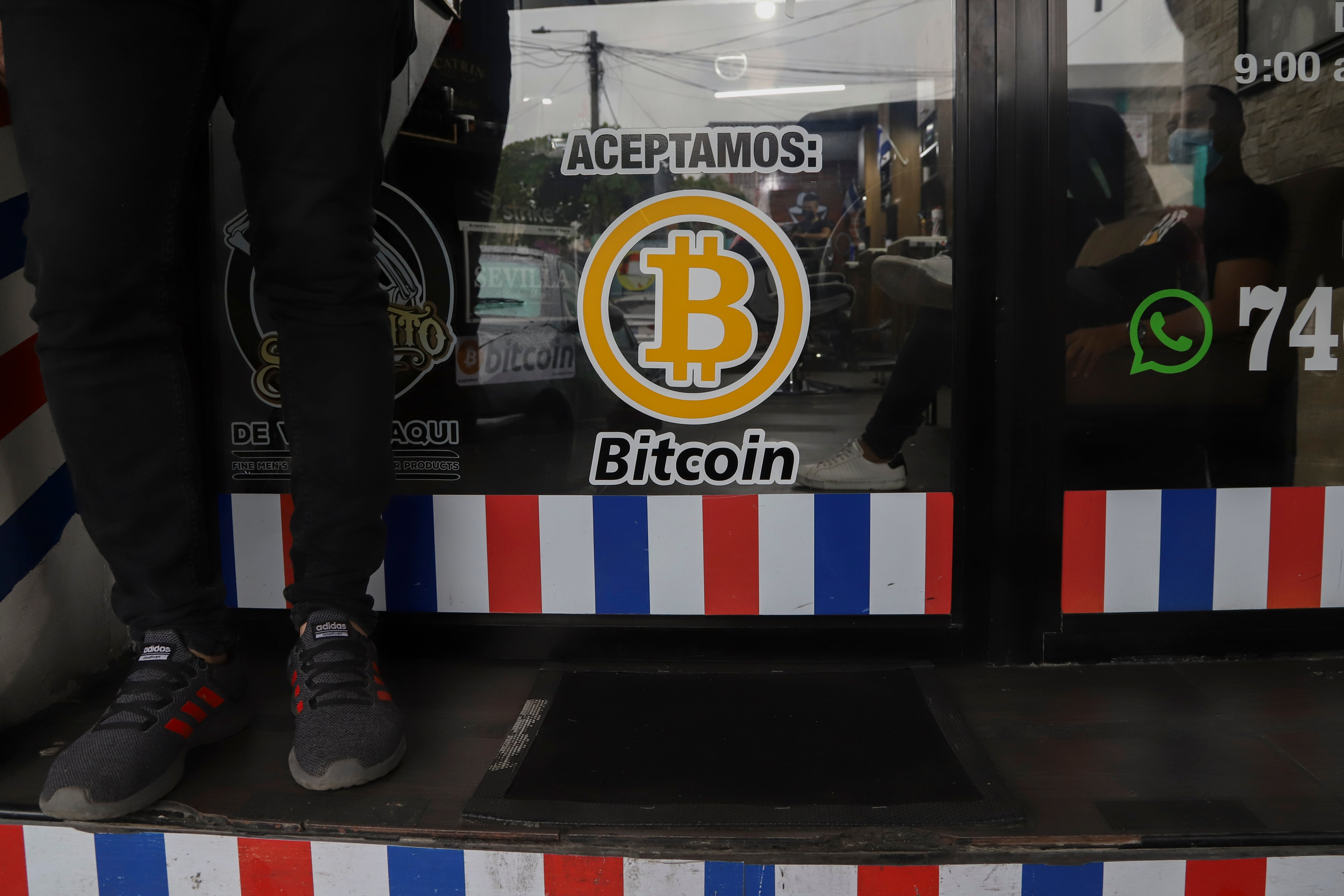IMF urges El Salvador to drop Bitcoin as legal tender
The International Monetary Fund wants El Salvador to drop the highly volatile cryptocurrency Bitcoin as legal tender and strictly regulate the electronic wallet the government has pushed adoption of across the country

Your support helps us to tell the story
From reproductive rights to climate change to Big Tech, The Independent is on the ground when the story is developing. Whether it's investigating the financials of Elon Musk's pro-Trump PAC or producing our latest documentary, 'The A Word', which shines a light on the American women fighting for reproductive rights, we know how important it is to parse out the facts from the messaging.
At such a critical moment in US history, we need reporters on the ground. Your donation allows us to keep sending journalists to speak to both sides of the story.
The Independent is trusted by Americans across the entire political spectrum. And unlike many other quality news outlets, we choose not to lock Americans out of our reporting and analysis with paywalls. We believe quality journalism should be available to everyone, paid for by those who can afford it.
Your support makes all the difference.The International Monetary Fund wants El Salvador to drop the highly volatile cryptocurrency Bitcoin as legal tender and strictly regulate the electronic wallet the government has pushed adoption of across the country.
The global lender’s board “urged the authorities to narrow the scope of the Bitcoin law by removing Bitcoin’s legal tender status,” the IMF said in a statement Tuesday.
“The adoption of a cryptocurrency as legal tender, however, entails large risks for financial and market integrity, financial stability and consumer protection,” the IMF statement said.
President Nayib Bukele led the push to adopt Bitcoin as legal tender alongside the U.S. dollar. El Salvador’s Legislative Assembly made the country the first to do so in June.
After nearly doubling in value late last year, Bitcoin has plunged and on Tuesday was slightly below where it was when the congress voted June 9. The Bitcoin law went into effect in September.
From the start there were concerns that a digital currency created to be beyond the control of governments would attract criminal activity. Bukele promoted the adoption as way for thousand of Salvadorans to avoid money transfer fees when relatives living outside the country sent home remittances.
El Salvador’s law called for all businesses — with the technological ability — to accept Bitcoin as payment. The rollout was glitchy, but seems to have smoothed out.
Bukele became a darling of the cryptocurrency’s promoters and has since spoken of building a Bitcoin city and issuing Bitcoin-backed bonds, something else some IMF directors expressed concern over.
Bukele’s office said it did not immediately have a comment on the IMF’s statement.